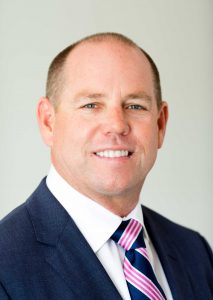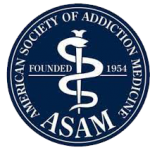Menu
In addiction and mental health centers and sober homes throughout Florida, patients and residents die wrongfully every year of overdose and suicide.
John Colvin investigates and litigates unexpected deaths at addiction treatment and mental health facilities. With the support of experts and consultants in addiction medicine, psychiatry, and toxicology, John has a national network of resources to help understand why a patient in an addiction treatment facility dies, usually alleged to be by overdose or suicide. John has worked cases where toxicology proved the facility negligently prescribed harmful medications, resulting in the accidental death of the patient. John understands families seek these facilities to protect their loved-ones. When tragedy strikes, whether reported as an overdoes or suicide or other cause, John’s team of experts and consultants can help the family understand what happened and whether a claim should be presented.
“The deaths are wrongful when they are preventable.”
~ John Colvin

John V. Colvin is among less than 1% of Florida attorneys who are Board Certified Civil Trial Lawyers by The Florida Bar. Even fewer attorneys share John’s successful track record, including holding addiction treatment facilities and providers accountable, by bringing claims against them, for cases of wrongful death.
In what is known nationally as “addiction tourism,” thousands in crisis are lured to Florida each year with promises of addiction treatment and recovery amid our state’s pristine beaches.
Often at family members’—usually parents’—urging, individuals surrender to addiction treatment facilities in the aftermath of events including overdose, attempted suicide, suicidal ideation, and all forms of rapid decompensation.
Parents deserve to understand what role, if any, the admitting facility and its “professionals” played in an individual’s fatal overdose or suicide while at the facility.
Examples of roles that could contribute to suicide or death by overdose within a Florida addiction treatment facility include:
Coupled with the desire for answers can be shame, even guilt, about the circumstances leading to surrender, admission, subsequent overdose, or suicide. Given their kids’ at-risk lives, parents are often hesitant to pursue a claim.
“Their addiction shouldn’t be their indictment. Their backstories don’t justify their deaths,” John said. “People exit treatment alive every day. Not every death occurring within these facilities is inevitable.”
The words provide cover for addiction treatment facilities, conveying total responsibility to the individual.
“She overdosed.” “He committed suicide.” “She brought drugs into the facility.”
Don’t let the shame that words like “suicide” and “overdose” can bring prevent you from investigating a potential claim that seeks answers in your son or daughter’s death.
Words matter. Here, context matters more.
There are many excellent facilities, in Florida and across the country, providing care for people of all ages. Professionals staffing these facilities can have adequate resources and training.
A set of national protocols ensures individuals within these facilities are reasonably secure from self-harm, overdose, and suicide. This is the duty to care these facilities adhere to and willingly assume. There are other facilities, some with well-meaning owners and administrators, unlawfully ill-equipped to deliver the care and protection their websites and marketing pitches promise.
Telling one type of facility from the other is challenging. This deception is by design.
The “engagement process” begins the moment someone is enticed to land on a treatment facility’s website.
There, they’ll find reassuring words like:
The words make a promise.
Overstated and sometimes misleading, additional assurances come via phone, email, and one-on-one interactions. They detail how individuals will be protected while at the facility, especially from themselves.
In the absence of meaningful state regulation in Florida, some leading facilities follow national organizations’ guidelines, principal among them, The American Society of Addiction Medicine’s (ASAM) Criteria – Treatment Criteria for Addictive Substance-Related and Co-Occurring Conditions.
Addiction Medicine’s (ASAM) Criteria – Treatment Criteria for Addictive Substance-Related and Co-Occurring Conditions.
Founded in 1954, ASAM is dedicated to increasing the quality of addiction treatment, educating physicians and the public, research, and prevention, and promoting the appropriate role of physicians in the care of patients with addiction.
When Florida addiction treatment or mental health facilities’ marketing promises don’t materialize as clinical care and protections, and people die, parents can seek answers.
He will aggressively seek answers on your behalf.